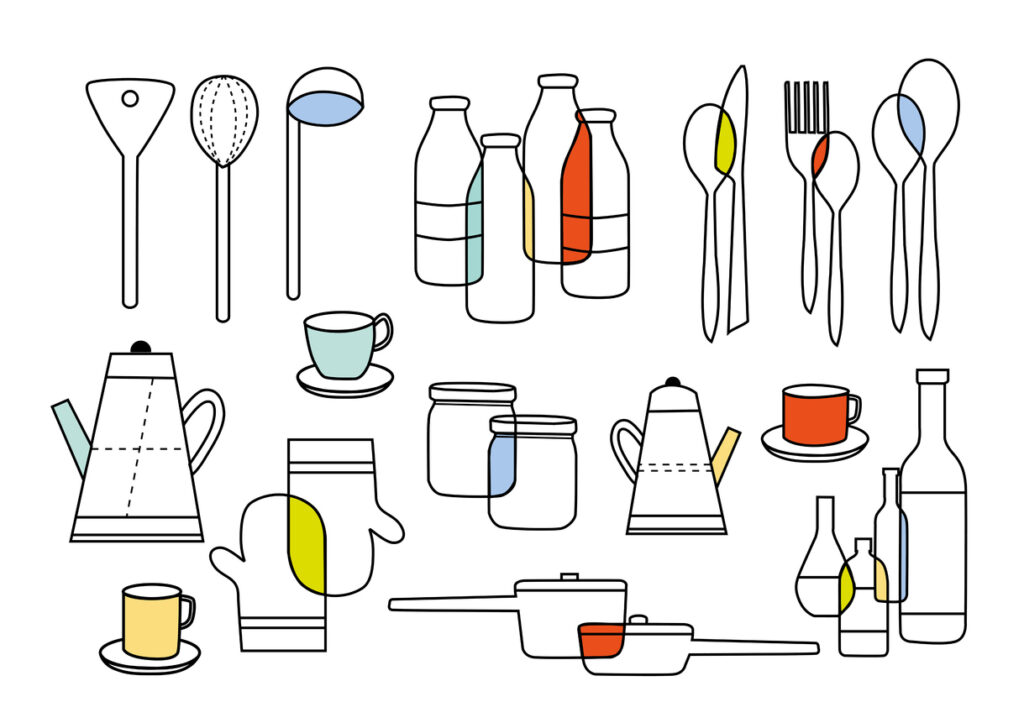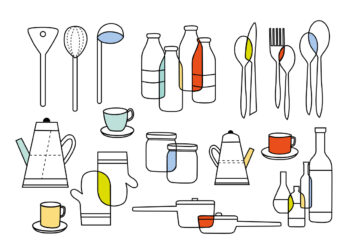This is the first in a new series of interviews with leaders of scholarly infrastructure organizations, intended to introduce you to them as people, as well as to the products and services they deliver. Today, we’re hearing from Adam Hyde, Founder and Principal Architect of Coko, a not-for-profit provider of open source tools and services for the publishing community, with around 40 staff across six continents.
Please tell us a bit about yourself — your role at Coko, how you got there, and why you embarked on a career in scholarly infrastructure?
As a technology artist I did a residency in Antarctica, collaborating with scientists to build an autonomous research station in 2006. It was a great experience and, when I returned from Antarctica, I decided to change my focus from the arts to exploring and enabling collaborative knowledge creation processes.
With no concrete plan beyond a vision to leverage collaboration to improve the creation and sharing of knowledge, I found myself designing early collaborative book creation platforms and methodologies like Book Sprints to rapidly facilitate book authoring. These grassroots efforts soon led to an invitation to join PLOS, where I gained deeper expertise in research infrastructure by designing their open source system, Aperta.
Then in 2015, I used funds from my Shuttleworth Foundation fellowship to seed Coko — a new effort to empower researchers through open systems that remove barriers to collaboration. My artistic spirit of experimentation motivates me to this day as we create infrastructure designed for new ways of creating and sharing knowledge.
What do you like most and least about working in scholarly infrastructure?
What I like most is the opportunity to have a meaningful impact on the way research knowledge is created and shared by building more open, collaborative systems.
One of the biggest challenges is conveying the depth and nuance of the problems in scholarly publishing. It’s easy to call for change, but harder to grasp the systemic and technical barriers. For instance, flawed file formats cost the sector millions annually, yet go unseen. With the right investment in open solutions, we could resolve these inefficiencies. But many such complex issues get overlooked.
At Coko, we’re working to solve deep-rooted problems — from file formats to review systems — in order to transform scholarly communication. But it’s an uphill battle to explain the need for foundational infrastructure changes. Many funders and publishers aren’t yet willing to adequately invest in modernizing these outdated systems and workflows.
Based on your own experiences, what advice would you give someone starting, or thinking of starting, a career in scholarly infrastructure?
- Persist. Don’t abandon your vision.
- Create your own manifesto. Define your purpose and principles to guide your work. Have a look at ours as an example.
- Build bridges, not islands. Create technology that meets people where they are while enabling them to move towards better ways of working.
- Design from a workflow-first position. Build tools that conform to how people work.
- Understand the value of open source. Collaboration and transparency breed better solutions and lower the cost of building, maintenance, and innovation.
- Master co-creation. Engage with your users as co-creators, not just passive consumers.
What sort of infrastructure does Coko provide, and who are your users?
Coko develops open source software to power scholarly publishing. In this sector our flagship platform is Kotahi, an end-to-end system for journals, preprint review, and more. Kotahi enables new ways of open, collaborative publishing.
Another key product is Ketida, a streamlined single source publishing platform for book production. We also build modular components like Pagedjs, Wax, and xSweet that others can leverage to create publishing tools. FLAX is our extremely versatile CMS that many reading this might find interesting (the Louvre used it recently for an exhibition catalog).
It is also important to note we build diverse custom platforms from Question Banks, to content and data aggregation platforms and more, for a diversity of organizations such as HHMI, NCBI, DataCite, Wellcome, and others.
Our diverse users include scholarly publishers, research organizations, open education publishers, government entities, small presses, journals, libraries, archives, and more. Major projects using Coko infrastructure include the Novel Coronavirus Research Compendium, eLife, Biophysics Colab, Lulu.com, Amnet, WACREN, HHMI, NCBI, WormBase, and the Open Education Network.
Everything we make is 100% open source.
How is Coko sustained financially?
Coko is a not-for-profit sustained through earned revenue and philanthropic support. Core revenue comes from publishers, institutions, and funders paying Coko to build new platforms or to extend our existing software to meet their needs.
Any surplus is reinvested into Coko’s foundational open infrastructure like PagedJS and Kotahi. Coko also receives grants from foundations/partners who share the vision of transforming publishing through open infrastructure and community-driven development. This blended model allows Coko to build sustainable open source publishing infrastructure benefiting partners and the community.
As one of the leaders of a scholarly infrastructure organization, what do you think are the biggest opportunities we’ve not yet realized as a community — and what’s stopping us?
Key journal functions are becoming decoupled from traditional journal structures. Preprint servers enable submission and dissemination outside of journals. Online review platforms facilitate open peer review of preprints independent of formal journals. Curatorial systems like Sciety are providing models to explore the curatorial role of journals outside of the journals walls.
These innovations point to a future where journal publishing, as a very specific process, is no longer the only way to work. As these disruptive models take hold, we have an opportunity to reimagine scholarly communication as a more open, collaborative, researcher-driven ecosystem. That should be exciting for everyone!
However, shifting ingrained scholarly cultures is challenging when most technologies rigidly mimic traditional journals, obstructing innovation. At Coko, we take a different approach. Our goal is providing adaptive tools to help the community transition from current workflows to desired future states. Kotahi embodies this ethos. Its flexibility facilitates experimenting with new communication paradigms while still supporting existing needs. Custom configurations enable all kinds of models from journals and preprints to preprint review, open peer review, micropublications, and beyond.
Too often technology limits possibility. We are working hard to remove those limits, inviting communities to reimagine how they work.
Looking at your own organization, what are you most proud of — and what keeps you awake at night?
I’m immensely proud that we’ve built an organization grounded in strong values of openness, inclusion, and human-centric technology. Our ability to collaborate and treat one another with compassion is what I’m most proud of. We’ve worked hard to foster a respectful work culture even as we’ve rapidly grown and evolved, which has resulted in very few people leaving over the years.
Professionally, the biggest thing that keeps me up is ensuring we stay focused on our mission. The stakes feel high and there is a lot to do. That in itself can sometimes keep me awake!
What impact has/does/will AI have on Coko’s work?
AI stands to be an immensely valuable tool for Coko if applied thoughtfully. The key is first defining clear goals for how AI can augment our work, then working backwards to implement the right AI capabilities. Across all our products, we’ve built AI subsystems that can integrate large language models where useful. In our book production tool Ketida, we’re currently running experiments to see how AI can streamline and enhance workflows.
Paul Shannon (eLife Head of Technology and Innovation), John Chodacki (Director of UC3), and I wrote an article that pretty well reflects where Coko is on AI — https://upstream.force11.org/an-initial-scholarly-ai-taxonomy/.
What changes do you think we’ll see in terms of the overall scholarly infrastructure over the next five to ten years, and how will they impact the kinds of roles you’ll be hiring for at Coko?
AI’s impact is growing, but developments in open access may most disrupt scholarly publishing. Many legacy publishers made big investments to prop up outdated systems. As open models gain momentum, these systems face obsolescence. This shift presents an opportunity for future-proofed platforms like Kotahi designed for openness.
We are preparing to assist this transition. Our new deployment and migrations team (established this week) helps implement Kotahi quickly, with ongoing support. Outreach efforts have expanded under our Head of Strategic Partnerships, Lara Bowen, who joined a few weeks ago to increase adoption. We are also upskilling in AI, hiring data scientists and prompt engineers to leverage AI’s potential.
With focus on open infrastructure and emerging technologies, we are aiming to enable publishers and researchers to exploit this period of flux over the next decade and beyond.



